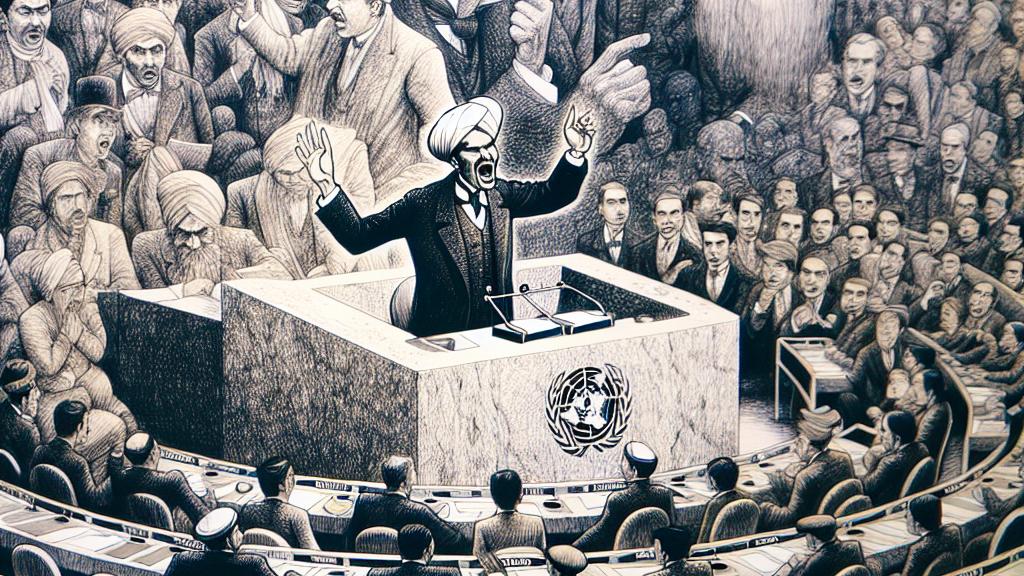Pakistan PM Highlights Kashmir Issue at UNGA
Overview
- In his UNGA address, Pakistan's PM Shehbaz Sharif passionately spotlighted the Kashmir conflict, drawing parallels to global struggles.
- He urged India to reverse the controversial abrogation of Article 370 to foster a path toward lasting peace.
- The Kashmir issue, laden with historical tensions, remains a pivotal element affecting the complex Indo-Pak relationship.

Kashmir's Ongoing Crisis
On September 27, 2024, during a significant speech at the United Nations General Assembly in New York, Pakistan's Prime Minister Shehbaz Sharif fervently highlighted the longstanding Kashmir conflict. He notably compared the fight for Kashmiris’ rights to that of the Palestinians, emphasizing that both groups have endured decades of struggle for self-determination and recognition. This poignant comparison resonates deeply, considering that the roots of the Kashmir conflict date back to 1947, when the princely state, amidst chaos and divisions following the partition of India, chose to accede to India—an act fraught with political and emotional ramifications for millions.
The Decision to Abrogate Article 370
Sharif's address took a critical stance on India's unilateral decision in 2019 to abrogate Article 370, which provided Jammu and Kashmir with special autonomy. He urged India to reconsider this controversial move, arguing that true and lasting peace could only emerge from sincere dialogue between all parties involved. The fallout from this decision has been immense: military forces flooded the region, curfews and communications blockades were implemented, and the civil liberties of the people were severely curtailed. For the residents of Kashmir, living under such oppressive conditions has created a climate of fear and uncertainty, where their very identity is at stake as they grapple with the loss of their unique cultural and political rights.
International Dynamics and Local Concerns
Despite Pakistan's relentless efforts to bring international attention to the Kashmir issue, the global reaction has been notably muted. The United Nations, while acknowledging the complexities, has struggled to mediate effectively, leaving many Kashmiris feeling isolated and unheard. India, on the other hand, remains steadfast in its position that Kashmir is an inseparable part of its sovereign territory and insists that Pakistan should focus on its own internal issues rather than exacerbating tensions. As the situation continues to unfold, both nations persist in asserting their claims, but behind this diplomatic posturing lies a harsh reality: the voices of the Kashmiri people—who yearn for a peaceful resolution and recognition—are often overshadowed by bureaucratic indifference and geopolitical agendas.

Loading...